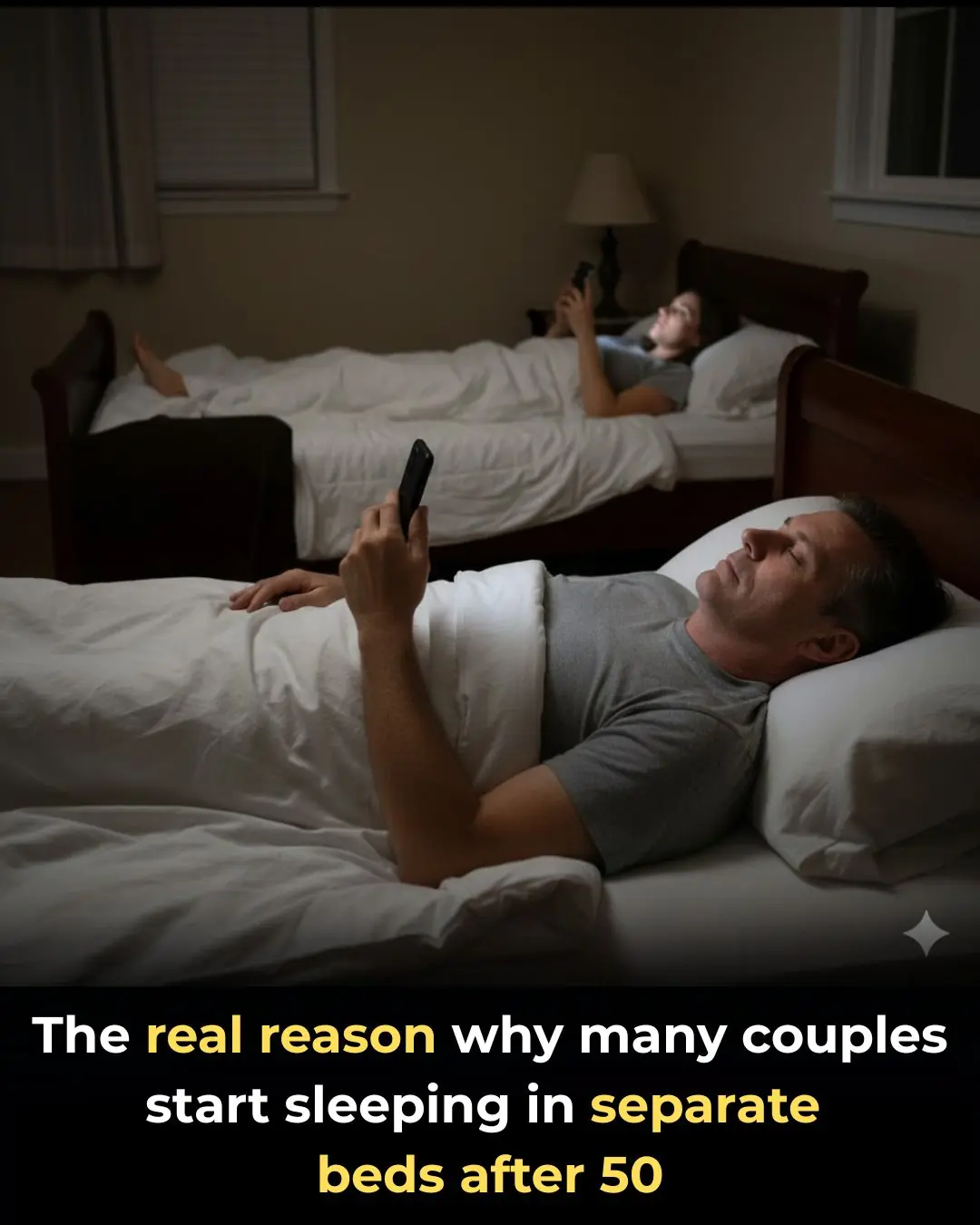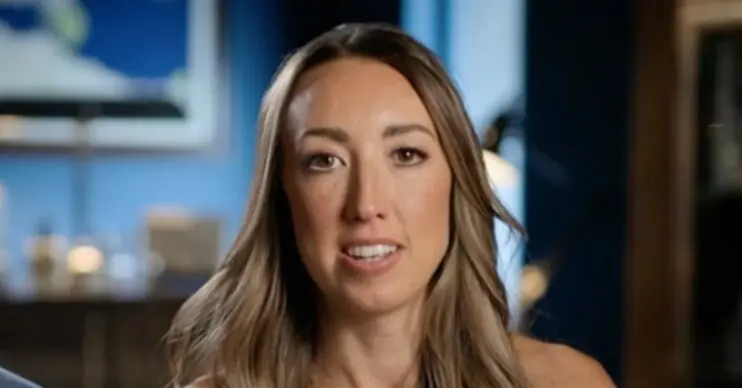
Ever Wake Up But Can’t Move

Ever Wake Up but Can’t Move? You’re Definitely Not Alone
For many people, bedtime is the most comforting part of the day — a moment to unplug, recharge, and let the mind and body settle into deep rest. But for others, sleep sometimes takes an unexpected turn into something far more unsettling.
If you’ve ever woken up and suddenly realized you can’t move, can’t speak, and can’t even call for help, you’re far from alone. Millions of people around the world have experienced this frightening phenomenon, known as sleep paralysis. And while it feels mysterious or even supernatural, science has a clear explanation.
What Exactly Is Sleep Paralysis?
Sleep paralysis occurs during the transition between sleep and wakefulness. In this state, your brain is fully conscious, but your body remains temporarily “shut down,” leaving you stuck between dreaming and waking up.
You may open your eyes and see your room clearly, yet find yourself unable to move your arms, legs, or mouth. Many people experience vivid hallucinations during an episode — from shadowy figures in the corner to whispers, footsteps, or the classic sensation of a heavy weight pressing on the chest. No wonder many cultures historically blamed spirits, demons, or otherworldly forces.
Science, however, tells a more grounded story.
Why Does It Happen?
During REM (Rapid Eye Movement) sleep, which is when most dreaming occurs, the brain intentionally “paralyzes” the body to keep you from acting out your dreams. This is a normal protective function.
Sleep paralysis happens when:
-
Your brain wakes up too quickly,
-
while your body is still in REM paralysis.
This mismatch creates a temporary state of full awareness with zero mobility. An episode usually lasts anywhere from a few seconds to a couple of minutes — though it can feel much longer when you’re experiencing it.
Common Triggers Behind Sleep Paralysis
Sleep paralysis is surprisingly common, and certain factors increase its likelihood:
-
Sleep deprivation or irregular sleep patterns
-
High stress levels or emotional exhaustion
-
Anxiety disorders or depression
-
Jet lag, night shifts, or rotating work schedules
-
Sleep disorders, including insomnia and narcolepsy
-
Sleeping on your back, which is a known trigger for many people
Even a single rough night of sleep can throw off your sleep cycle enough to lead to an episode.
Is Sleep Paralysis Dangerous?
Here’s the reassuring truth:
Sleep paralysis is not physically harmful, even though it feels terrifying.
It doesn’t damage your brain, affect your nerves, or indicate a serious medical problem. Most people experience it once or a few times in their lives and never again.
However, if it becomes frequent or starts interfering with your ability to sleep peacefully, it may be worth talking to a healthcare provider. Persistent episodes can sometimes be linked to chronic insomnia, untreated stress, or underlying sleep disorders that deserve attention.
What to Do If It Happens
Remaining calm can feel almost impossible, but it’s the key to getting through the episode more comfortably. Here’s what experts recommend:
-
Focus on slow, steady breathing.
Deep breaths can stabilize your nervous system. -
Avoid panicking or struggling.
Fighting the paralysis often makes the experience feel longer. -
Try moving a small part of your body first, such as a finger or toe.
This can often “kick-start” full movement. -
Remind yourself it’s temporary.
Even though it’s frightening, it will pass on its own.
Some people also find relief by closing their eyes during an episode to reduce hallucinations.
Can You Prevent Sleep Paralysis?
Yes — and the best approach is improving your overall sleep hygiene. Here are effective habits that help reduce the risk:
-
Stick to a consistent sleep schedule, even on weekends.
-
Create a relaxing nighttime routine — soft lighting, warm showers, gentle stretching, reading, or calming music.
-
Limit screens at least 30–60 minutes before bed.
-
Cut back on caffeine and alcohol, especially late in the day.
-
Manage stress with mindfulness, journaling, or breathing exercises.
-
Try sleeping on your side if you often experience episodes on your back.
Small lifestyle adjustments can make a big difference in preventing future episodes.
The Bottom Line
Sleep paralysis can feel like a nightmare you can’t wake up from, but it’s a natural and well-documented biological response — not a sign of danger or anything supernatural. Understanding what’s happening inside your body can make the experience far less frightening.
So if you ever wake up frozen in place, remember:
You’re not alone, it’s not harmful, and it will pass. With a bit of self-care, stress management, and consistent sleep habits, you can create calmer nights and a more peaceful relationship with sleep.
News in the same category

If You See A Bent Tree In The Forest, Start Looking Around Immediately
Scientists Discovered A Sinkhole 630 Feet Underground In China Known As “Heavenly Pits”

Are Eggs with Bl00d Spots Safe to Eat? The Truth Behind Those Tiny Red Specks

You’ll Think Twice About Soft Serve

A 42-Year-Old Man Died of a Stroke Despite Not Smoking or Drinking — Doctors Shocked to Find the Real Daily “Killer” in His Diet

How to Remove Water Stains from Wood with Mayonnaise

Close or open the bathroom door for ventilation? It turns out many people still do it wrong

What Does It Mean To Wear a Ring On The Right Hand

Who Will Not Be Eligible As Trump Promises To Give $2,000 To Almost Everyone In America

I Thought I Found Insect Eggs Under My Bed

The Lip Color You Pick Reveals What Kind of Woman You Are

Don’t Toss That Tuna Can

101-year-old woman who still works 6 times a week explains what she fears would happen if she retired

What the Inside of Your Car Might Say About You

This Simple Word Could Let Scammers Clone Your Voice with AI

Donald Trump ‘rattled’ as he’s booed at stadium he wants named after him

Here’s Why Many Couples Start Sleeping In Separate Beds After 50

Why Do We Get Shocked by Static Electricity
News Post

Riot Women ending: Kitty’s double prison twist as Sally Wainwright drama concludes series one on BBC One

Inside Shona McGarty’s love life – from romance with two EastEnders co-stars to failed first engagement

Everything Mike and Zara Tindall have said about moving to Australia

Strictly Come Dancing week 8: lots of emotions on show but is it time to shake things up?

Meghan Markle ‘breaks silence’ on set of new movie as she ‘admits she’s rusty’

Harleymoon Kemp on ‘disaster’ love life after finding out partner ‘had secret family’

Prince Harry’s sad comments about ‘tainted’ relationship with Caroline Flack

Too Friendly for Police Work, Perfect for Your Home: Adopt Former Service-Dog Trainees

Strictly backlash as Carlos Gu accused of ‘fake’ crying after judges’ comments to partner Karen Carney

Stem Cell Breakthrough Restores Natural Vision by Regenerating Damaged Corneas

Worried Pete Wicks’ surgery fears amid secret health condition he’s had for years

COVID-19 Infection Poses Far Greater Health Risks Than Vaccination – New Large-Scale Study Confirms

A Newly Discovered Protein Switch Could Transform Cancer Treatment
